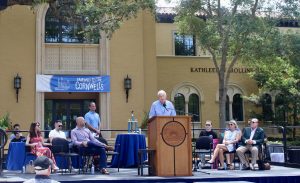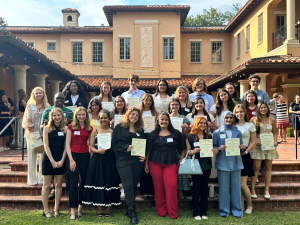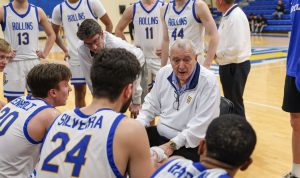At the most recent faculty meeting in the Bush Auditorium on Oct. 27, college by-laws and policies dealing with student absences were fundamentally changed.
This is a result of the work of determined students and the leadership of Student Life Committee’s chair, Associate Professor of Psychology Jennifer Queen, and former chair, Professor of English William Boles. These students brought the unfair nature of the old policy to the attention of all in attendance who had the capacity to vote.
In essence, the Rollins absence policy has not taken into consideration students who are required to miss class in order to fulfill religious observances, athletic obligations, or are bound by college business to miss class periods. This has been all but swept away with a new conception, which allows students the leeway to fulfill these obligations.
Under the new policy, it is the student’s responsibility to communicate any and all pending future absences with the professor, although the
student’s attendance grade may still suffer.
Professors are still given the freedom to determine attendance policies, so long as they conform to departmental standards. “If a student is not in class, he or she is not able to participate,” Queen said at the meeting.
Under the old attendance policy, if a student had to take more than the allotted number of absences allowed by department code or course syllabi, there was no official conditional agreement by which students could work with their professors in cases where the absences were substantiated either under the grounds of athletics or college business.
The faculty voiced some concern as to whether or not an affirmative vote on the matt er would give students a “green card” to organize more events that conform to the definition of “college business” in order to take advantage of the new legislation, but this concern was quickly silenced as a far-out possibility.
The Office of Multicultural Affairs teamed with Rollins Athletics Department to organize the religious and athletic student bodies. One representative from each delivered addresses to the faculty body, emphasizing the importance of the new policy in fulfilling Rollins’ mission of “Global citizenship and responsible leadership.”
Daniel Berlinger ’13, president of the Jewish Student Union, was one of the students with the opportunity to speak at the podium about his experiences with the old attendance policy. He was also one of the champions of this cause. As a member of the Jewish faith, religious observance of certain holy days is essential, and he informed his audience that this was something that “[he] had to contend with for [his] entire college career.”
Anita Cox ’13, a soccer player, also had negative experiences with the previous attendance policy. She had “missed three classes due to sports, and in the post season [she] had to miss a fourth unexpectedly, and was going to be penalized,” even though she had perfect attendance aside from the absences that were mandatory because of soccer. It was a long and arduous process to sort out the debacle.
“It took a lot of effort … going to the higher-ups” in order to get fair, due process, and to correct the negative grade impact caused by the accrued absences that were conducted under the auspices of the athletic department.
The motion was put before the assembly, and two procedural options existed that concerned the future of the cause: the students’ effort could have been shelved and put on the books for another year, as it had been for the past three; or, it could come to the floor to be put
to a vote.
The latter was chosen, and with a resounding call of “yea” from the faculty, the motion passed without opposition. Applause came from all quarters — both students and faculty. The matter, having been on the books for three years, was finally closed.










Be First to Comment